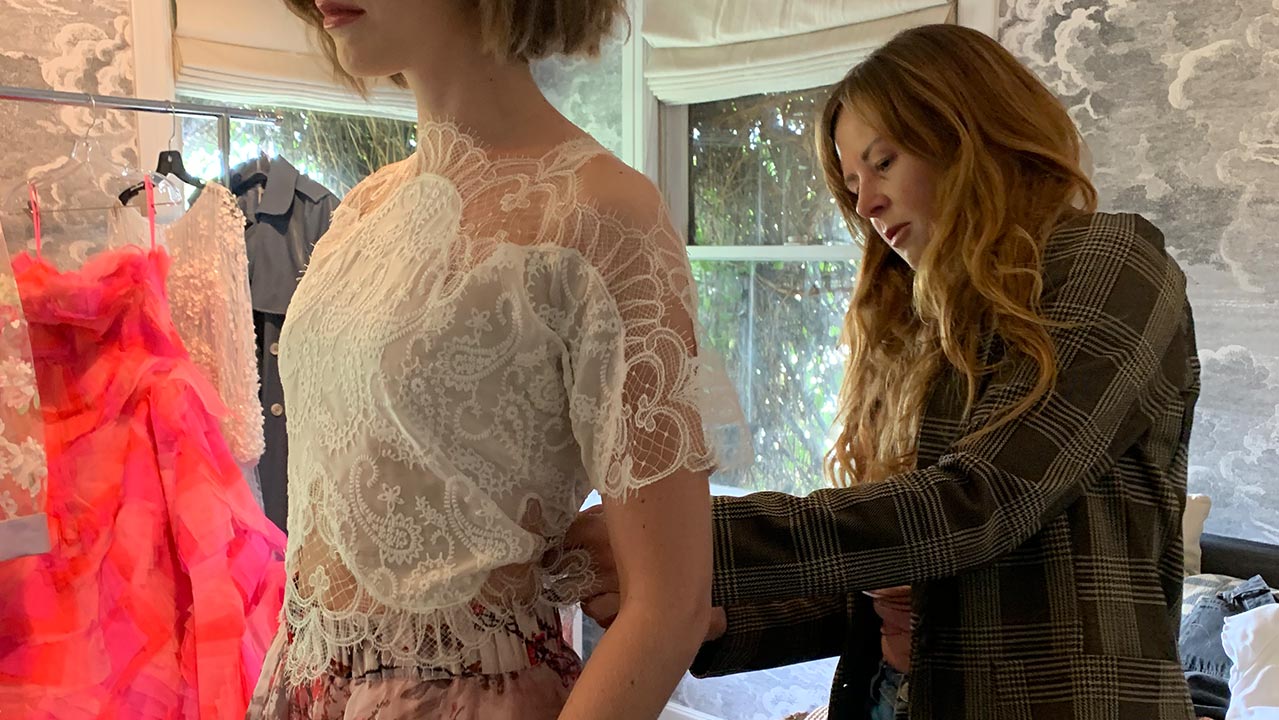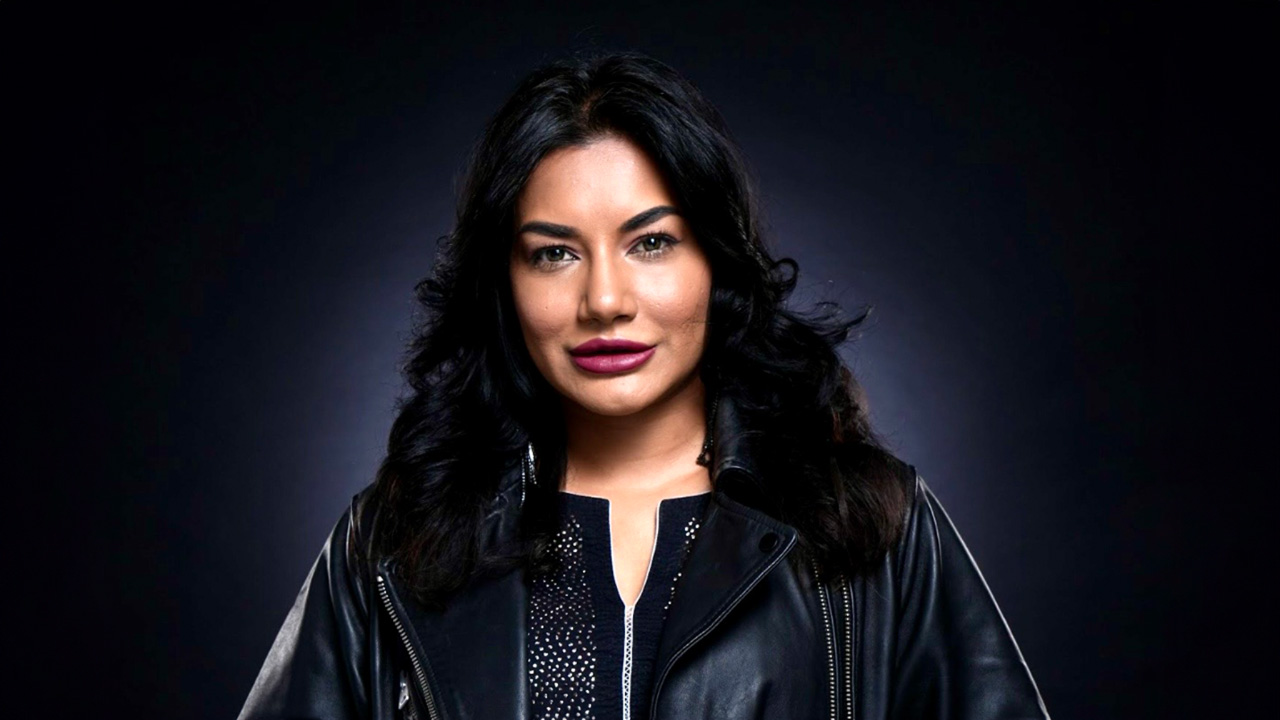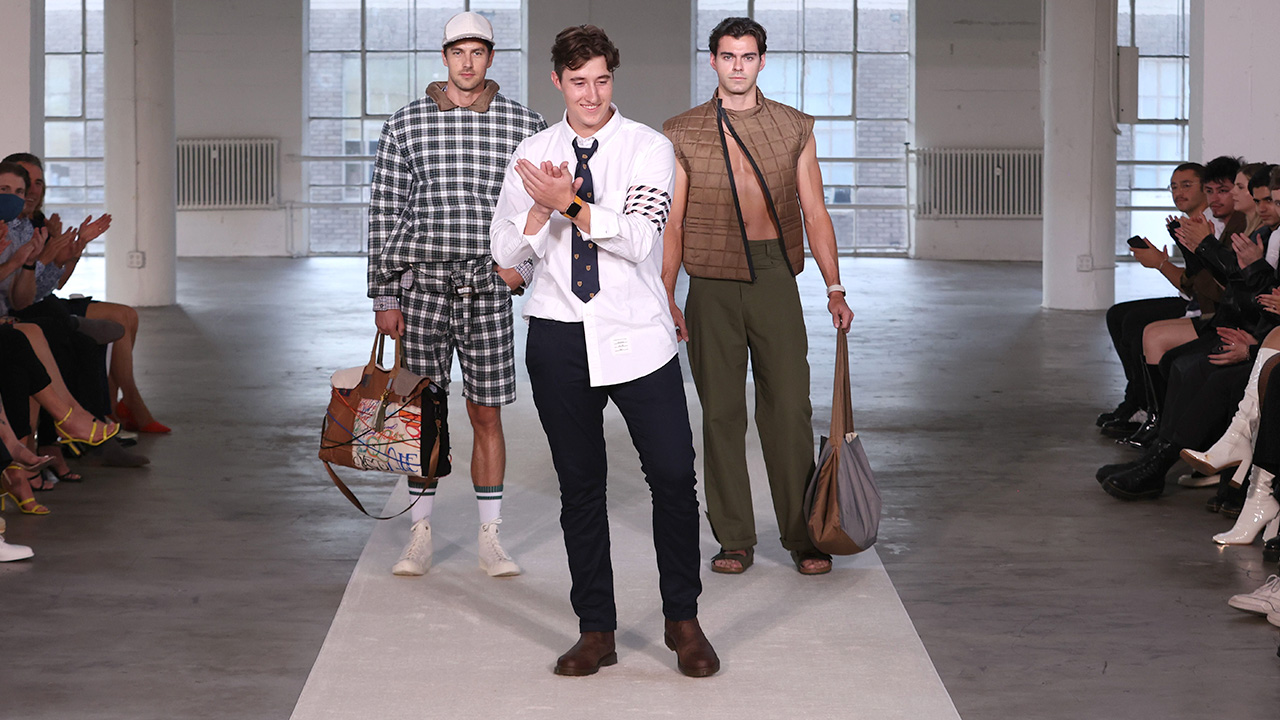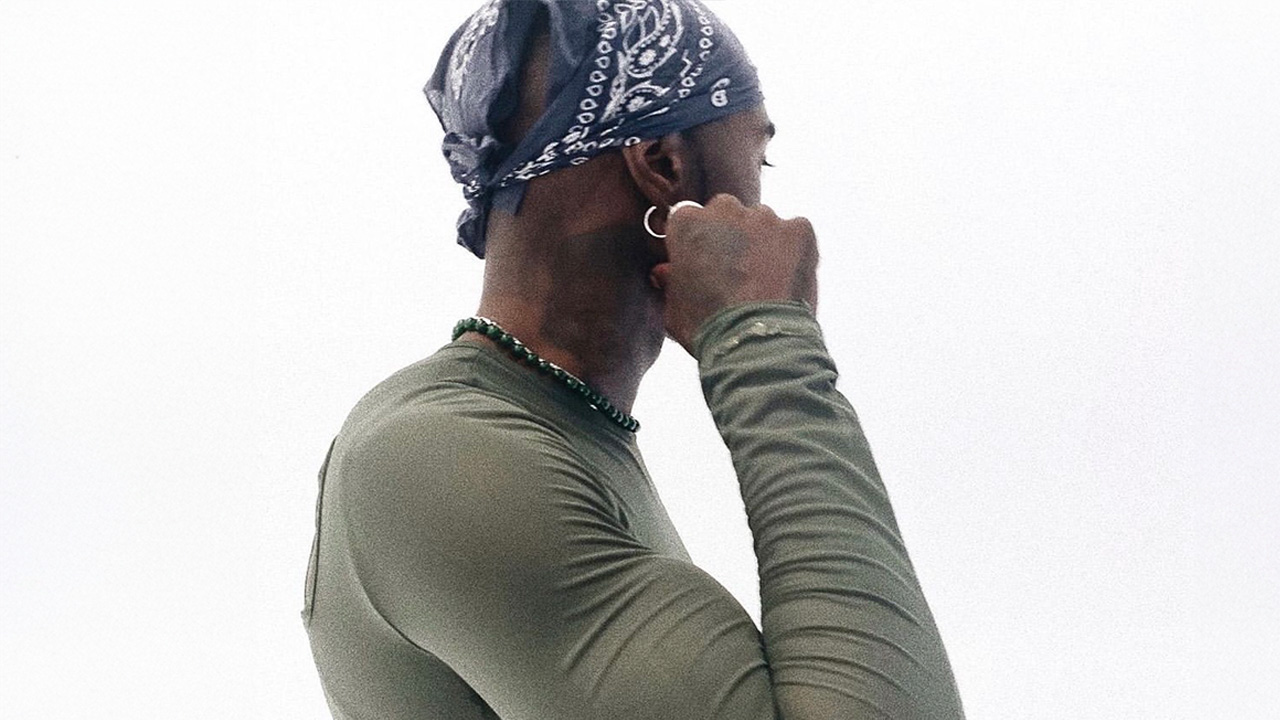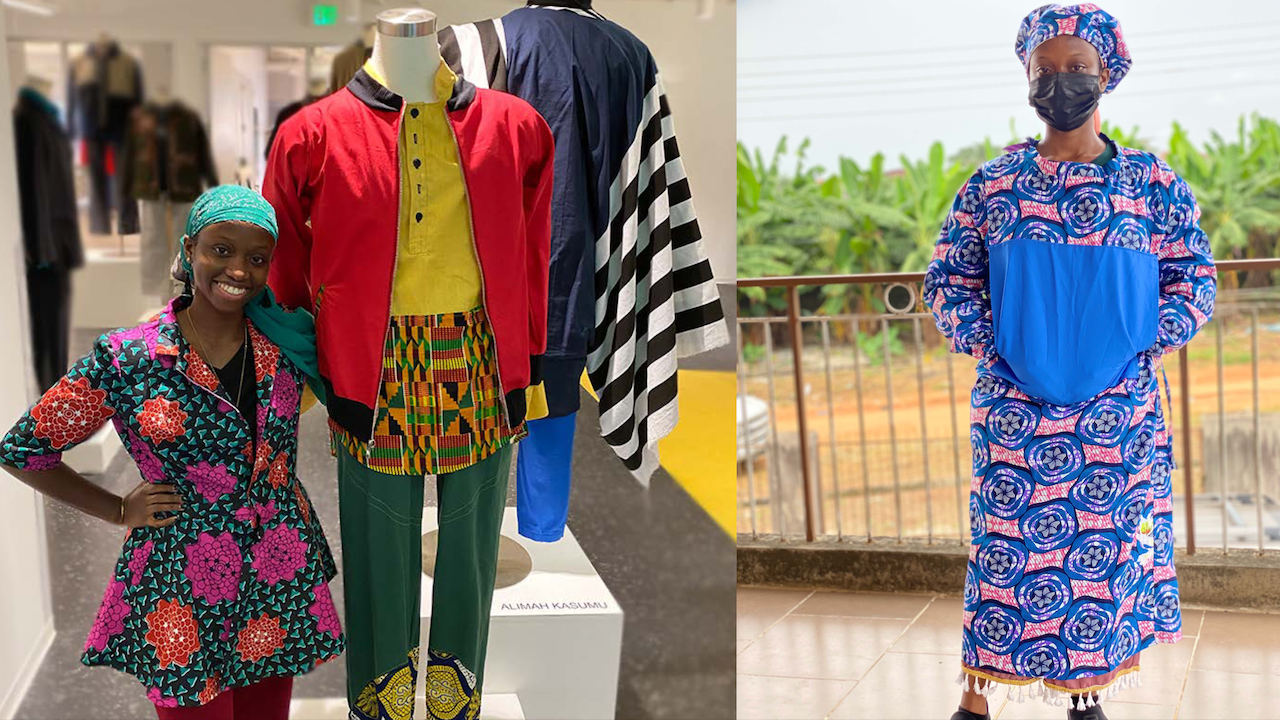
Alumni
Grad Sewed PPE for Medical Team in Nigeria
Alimah Kasumu was born in Philadelphia, Pennsylvania and raised in a small town outside of the city where she attended Abington Senior High School. After getting accepted to FIDM as a junior in high school, she received FIDM Fashion Club and Nordstrom Ambassadors scholarships to attend college. Arriving in Los Angeles during the summer of 2019, Alimah earned her first FIDM degree in Apparel Industry Management. “Being from out-of-state, I found lots of my current friends from FIDM Student Activities like FIDM MODE, PTK, and FIDM Best Friends,” she said. Alimah continued her education in the Advanced Study Menswear program, graduating this year, and recently returned from Nigeria where she sewed personal protective equipment for a Covid-related medical mission team. We caught up with the busy graduate to learn more about her inspiring FIDM journey.
When did you develop an interest in design? I had been sewing since the age of seven and sketching garments since I was little. In high school, I participated in the FIDM Fashion Club and later became President, while starting my own graphic t-shirt brand called A-Star Galaxy. If not because of the FIDM Fashion Club, I would have not known about FIDM, and would not have gotten accepted into college as a junior in high school. With my Nigerian background, fashion is highly important and that made me express more of my design ideas and creativity.
Describe your experience as a FIDM Fashion Club President at Abington Senior High School: I was committed to diversity and inclusion as the President of my school’s FIDM Fashion Club. I encouraged the underclassman to take part and assist in leading a DIY workshop for a meeting. The FIDM Fashion Club has aided me in my leadership skills since I was President for two consecutive years. With the help of my club Advisor, Vice President, and club members, we were able to host a fashion show which featured clothing and accessories sewn by the Vice President and I. Many students outside of the club developed an interest in participating in the fashion show and it ended up being a success.
As a striving entrepreneur, I learned how to be my own boss and to lead others. Being the FIDM Fashion Club President, I have learned and improved my leadership, teamwork, and communication skills. Stepping into my first year at FIDM, I had the opportunity to assist a Los Angeles designer in The Model Experience at LA Fashion Week in October 2019. I got to experience the journey of a Los Angeles fashion show designer from behind the scenes in the studio to seeing the models walk out on the stage.
Tell us about your work for the recent Menswear Exhibition: I set up my collection sketches, inspiration, portfolio, fabric swatches, business cards, gift bags, and video of the work that I have been doing throughout the Menswear program. The table set up in the classroom had each of my delivery sketches on boards which gave the visitors an excellent view of how the garments were merchandised. Next, gift bags were set up at the end of the table which included small pouches and scrunchies that I sewed, my resume, and business card. Additionally, I created a short video of the documented clips I kept of me sewing all 9 garments throughout the last quarter of the program. Part of the final for the program was to sew the muse look for each delivery of our collection. I had two of my looks in the hallway of the Hope building on dress forms, and one look displayed in the classroom with me.
What is your unique design vision? My collection for my clothing brand develops cultural and modest apparel/accessories to help people represent their ethnicity with the use of unique silhouettes and fabrications. It provides accessible modern-day apparel and accessories that represent various cultures and modest lifestyles. The products offered include kaftans, tunics, tops, skirts, drawstring bags, face masks, and kufis. In many cultures apparel and accessories represent significant concepts such as marriage status, wealth, tribe, et cetera. Consumers will feel connected to their culture with unique garment construction and fabric.
What is a valuable lesson you learned in the Menswear program? I have grown my portfolio tremendously by learning other aspects of a clothing brand that I did not learn in Apparel Industry Management. I learned more about time management and organization as the work we did was an example of what it would be like in the industry. We had to have 9 garments sewn (that most of us had never made before) in 10 weeks while still taking other classes and working. Most importantly, having a detailed outline and business plan for your brand idea will set the foundation for your journey.
What’s up next for you since graduating? After graduating, I applied and got accepted into the Bachelor of Science program for Business Management. I have been enjoying my new internship as a graphic designer and designing social media posts, flyers, thumbnails, and more. Also, I have been working on the sewing projects that I have wanted to start: I sewed my first fedora hat, made a pattern for an apron, sewed a dress shirt for myself, and more. Lastly, I have been working on growing my skincare brand, Muji’s Shea Essentials, by filming and sketching social media content, thinking of new collections, and most importantly, posting the job positions available as I am looking forward to adding people to my team.
How did you come to be in Nigeria for two weeks assisting a medical team? During the Spring 2021 quarter, when I was deeply involved in completing my menswear patterns and garments, one of the sponsors (NayKas Healthcare) of the mission reached out to me asking if I could sew their personal protective equipment for the medical mission. In the past years of the mission, prior to Covid, they had run out of disposable gowns for surgeons, and had no alternative. When I heard that story, I was touched and did not want that to happen again for this year’s mission, especially since we are still in a pandemic. He stated that he wanted 30 medical gowns, 30 medical hats, and 30 face masks. I packed my bags and headed to Nigeria towards the end of July 2021 with some family members.
What were your day-to-day responsibilities and what was this experience like for you? When in Nigeria, I worked with two small clothing manufacturers and showed them my design and sample of the medical gowns, hats, and face masks. A few of my day-to-day responsibilities included cutting gown pattern pieces, adding labels to PPE, delivering PPE to clinics for sterilization, and guiding patients to their designated station. Overall, I enjoyed my time there seeing family members that I don’t often see, making new friends with the volunteers at the medical mission, and experiencing the fun activities I got to do. After experiencing the medical mission and seeing the positive impact I made, I definitely look forward to volunteering again.
Learn more online at alimahk.wixsite.com/entrepreneur and on Instagram @a1imah and @mujisshea.
Categories: Apparel Industry Management Menswear Alumni

